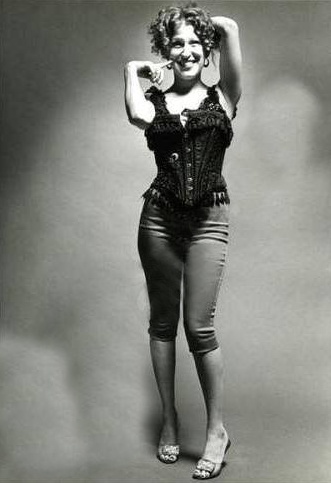
A BaltoBoy Scan
When popular music nears Medicare
New displays appeal to ‘older’ customers — meaning those over age 40
The Ventura County Star
By Chuck Thomas
November 8, 2003
Stop the presses! All right, I’ll confess: I’ve always wanted to say that, and there was a time when someone might have paid attention — but that was then and this is now. Besides, if they really did stop the presses, this column might wind up on the bulletin board at the neighborhood Laundromat.
They only stop the presses for truly gigantic stories, and this story is only extra-large. But how often is there a story that inspires a smile from the folks who qualify for senior discounts?
In most stories, we vintage characters are considered irrelevant. That’s certainly true of most TV commercials, where they seem to assume that no one over the age of 22 ever drinks beer — or even soda pop — ever washes their hair or ever buys a new car.
So it was quite a revelation to learn that Borders Books & Music has decided to start featuring “older” artists in the displays of new CDs in their stores. Naturally, their idea of “older” is anyone who hasn’t yet applied for Medicare.
We’re talking about such artists as Rod Stewart, Sting and Barbra Streisand, along with the Eagles, Bette Midler and Simon and Garfunkel.
Hey, wait a minute — or stop the presses — or something. I actually own some records by some of these people.
If you remember records — those round things with the hole in the middle — you probably also remember dial telephones, running boards and wind-wings on cars, watching movies in black-and-white and listening to those records on a hi-fi set. If so, you probably don’t even have to ask for the senior discount. The 19-year-old clerk takes one look and gives it to you automatically.
I’ve lost count of all the Streisand albums I have — going way back to the original cast recording of “Subways Are for Sleeping” and my enduring favorite, the soundtrack from a TV special, “Color Me Barbra.”
Paul Simon is a must, if only for “Where have you gone, Joe DiMaggio?” — and the immeasurably clever “Fifty Ways to Leave Your Lover.”
The tape of Bette Midler’s stage show, “The Divine Miss M,” is one of the funniest things you’ll ever see — if you’re not easily offended. And if you are, you should get over it.
I’ve heard the Eagles because of my son, Kirk, who must qualify as “older” because he’s approaching his 40th birthday. But to the music merchants, that age is now less irrelevant than it used to be.
The Recording Industry Association of America reports that people over the age of 40 bought 35 percent of all albums sold last year. Ten years ago, that number was 23 percent.
One big reason: Singers have quit relying on what today’s songwriters are regurgitating, and have started to appreciate the great songs that have endured for generations.
So Rod Stewart does “As Time Goes By: The Great American Songbook Vol. II,” and Streisand does “The Movie Album,” and then there’s “Bette Midler Sings the Rosemary Clooney Songbook.”
People who keep track of these things predict that the No. 1-selling album this year will be “Get Rich or Die Tryin’ ” by a rapper called 50 Cents. Somehow, I doubt that singers 30 years from now will be prolonging their own popularity by recording “The 50 Cents Songbook.”
One artist who can’t prolong his career by recording old standards is Elvis Presley, but he doesn’t need any help. For the third year in a row, he’s the biggest moneymaking celebrity of all, and his “The Best Of” albums sell better than they did when he was alive.
Music stores continue to feature some other singers who are long gone — like Frank Sinatra and Nat King Cole. They, too, have helped promote the popularity of today’s singers — Sinatra with tribute albums by singers of all ages, and Cole with the duet albums with his daughter, Natalie.
When we’re talking about Sinatra and Cole, we’re talking about a real vintage generation. I have a lot of both on records, tapes and CDs. Borders still stocks its albums, but not in the feature section, right up front. You’re more likely to find them in the bargain racks.
One reason the music merchants have come to appreciate “older” customers is they actually pay for the music. The younger, allegedly more relevant audience, includes a new, electronic kind of freeloader –downloading music via file sharing and, thereby, paying zilch.
The marketing ploy of appealing to “older” customers may not last, and it’s all rather relative. At any age, there’s always someone who seems “older” and before you get to Medicare, almost everyone seems that way.
Which may explain the arrival of a new music magazine called Tracks, announcing that it plans to leave other magazines, like Rolling Stone and Spin, to the youngsters.
A Tracks spokesperson said the magazine aims to cater to “older” readers, which they define as anyone over age 30.






